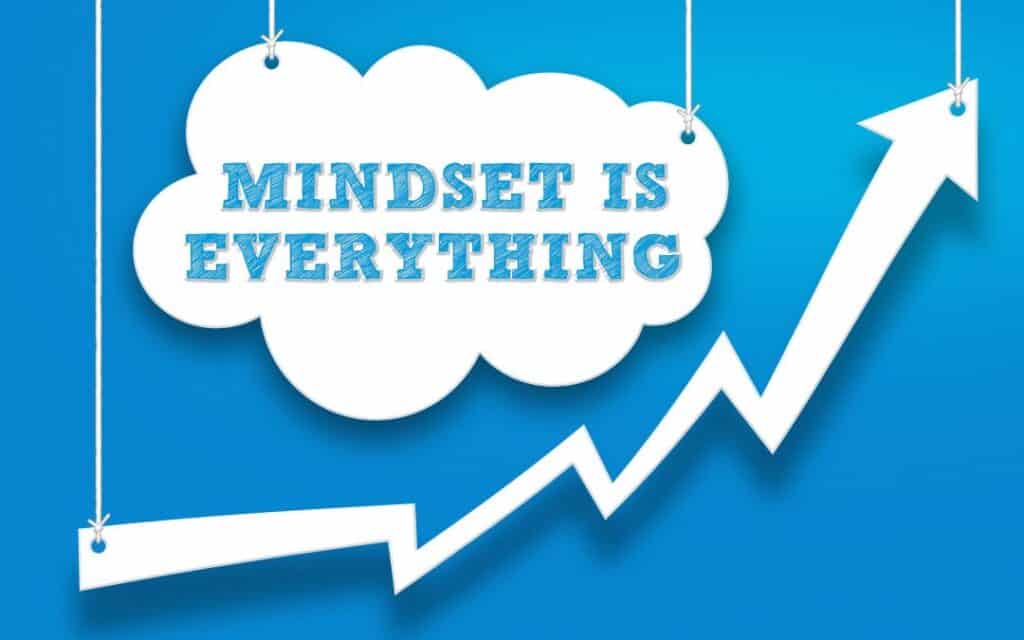Mindset refers to your beliefs and your perspective of yourself, your strengths and weaknesses, and your abilities. Your mindset is a key indicator of your joy, happiness, contentment, and your ability to succeed in life.
According to Stanford psychologist Carol Dweck, there are two main types of mindsets-fixed and growth. People with a growth mindset are resilient and committed to personal development and achieving their goals. In contrast, those with a fixed mindset believe their success is limited to their natural talents, strengths, and weaknesses, and there is not much they can do to improve.
Growth Mindset vs Fixed Mindset
If you have a fixed mindset, you believe your natural abilities and potential are fixed. You think that no matter how much hard work you put in, it has a minimal impact on achieving your goals.
As such, a fixed mindset person exhibits the following characteristics:
- Problem-oriented. A fixed-mindset person spends a lot of time and energy focusing on the issues in their life and their inherent inability to handle them.
- Numerous limiting beliefs. You frequently think thoughts such as “I am not good enough to be a manager or entrepreneur”. “I am not creative”. “Only certain people achieve that kind of success.” These beliefs hold you back from pursuing and achieving your goals.
- Fear of failure. People with a fixed mindset see themselves as predestined to fail. They believe that they lack the intelligence and ability to achieve success. Therefore, they do not try anything due to their fear of failure. They anticipate that if they do, they will fail, which further reinforces their incapability to succeed. As a result, they tend to avoid risks and give up easily.
- Avoid or ignore criticism. They see constructive feedback as an attack on them and a negative valuation of their abilities. Therefore, they avoid doing things that will attract criticism or ignore it.
- Perfectionist. Although perfectionism can be well-meaning as you endeavor to deliver or create the best outcome, it can also be paralyzing, leading to stress, procrastination, lack of confidence, and lack of creativity. Since people with a fixed mindset perceive mistakes as a reflection of themselves, they would rather not try something if there is a likelihood that it won’t be perfect or a success. Perfectionism and a fixed mindset are also detrimental to your mental health. The forgone opportunities can lead to a loss of purpose in life, which makes people with a fixed mindset more prone to depression and anxiety.
- Despise successful people. They see them as the chosen few and believe they cannot achieve that success. They perceive successful people as proud and arrogant and are jealous of them.
- Lack of drive. If you have a negative mindset, you see no point in trying something new as you believe you will fail or won’t achieve much success. Your dominant belief is that the key to success is one’s natural talents but not the effort one puts in.
On the other hand, a person with a growth mindset believes that although we have innate abilities, talents, and capabilities, we can develop them further or explore and develop new ones.
People with a growth mindset exhibit the following characteristics:
- Remarkable drive. They are eager to try new things as they see it as an opportunity to grow their abilities and achieve their goals.
- Recognize failure as part of the learning process. They do not fear failure, and mistakes do not define them. Instead, failure and mistakes provide feedback on areas that need improvement and serve as stepping stones to achieving their goals. Therefore, people with a growth mindset take risks and are eager to try new ideas. They face challenges resiliently and stay motivated throughout the process. They are patient with themselves and know that failure is not final.
- Other’s people’s success inspires them. It serves as evidence that they, too, can achieve their goals. They seek to interact with successful people for motivation, mentoring, and guidance.
- Open to constructive criticism. They see it as feedback and an opportunity for improvement and self-discovery. They use the input to set their learning and self-development goals and for deeper self-inquiry. Therefore, they value and seek honest feedback and do not take criticism as an attack on their abilities and personality.
- Understand that effort is pivotal to success. They understand that consistent action adds up in the long run to achieve even the seemingly biggest goals. Even if they are not the most skilled in a given area, they are willing to try, give their best, and learn throughout the process.
- Constantly learning. People with a growth mindset understand that there is always more to learn. Therefore, they commit to life-long learning and skill development.
- Self-confidence. They are confident in their abilities, talents, mindset, and effort. They do not seek external approval.
- Have excellent interpersonal relationships. People with a growth mindset build and retain relationships easily. They are committed to their relationships and handle any issues that arise with ease. When they interact with like-minded people, they challenge each other to be their best selves and pursue their goals. Their relationships are enjoyable and last a long time.
- Take responsibility for their life. A growth mindset allows you to own up for your part in failures and mistakes instead of blaming others or the environment.
A Growth Mindset Sees Possibilities, While a Fixed Mindset Is Disempowering
Success in life requires a growth mindset. A growth mindset allows you to learn, explore new things, and pursue your goals. It is solution-oriented. If you are a growth-minded person, mistakes and criticism do not threaten you and the achievement of your goals; instead, they provide an opportunity for learning and stepping stones to success.
On the other hand, a fixed mindset works against you and your innate ability. It holds you back from trying out new things and pursuing your goals. You may need help to achieve your goals as you believe your destiny is set and limited to your inherent abilities and intelligence.
Nurturing a growth mindset takes deliberate practice. It entails embracing new challenges and mistakes, learning new skills and broadening your knowledge, being open to feedback, and seeing successful people as an inspiration so that you can achieve success.




